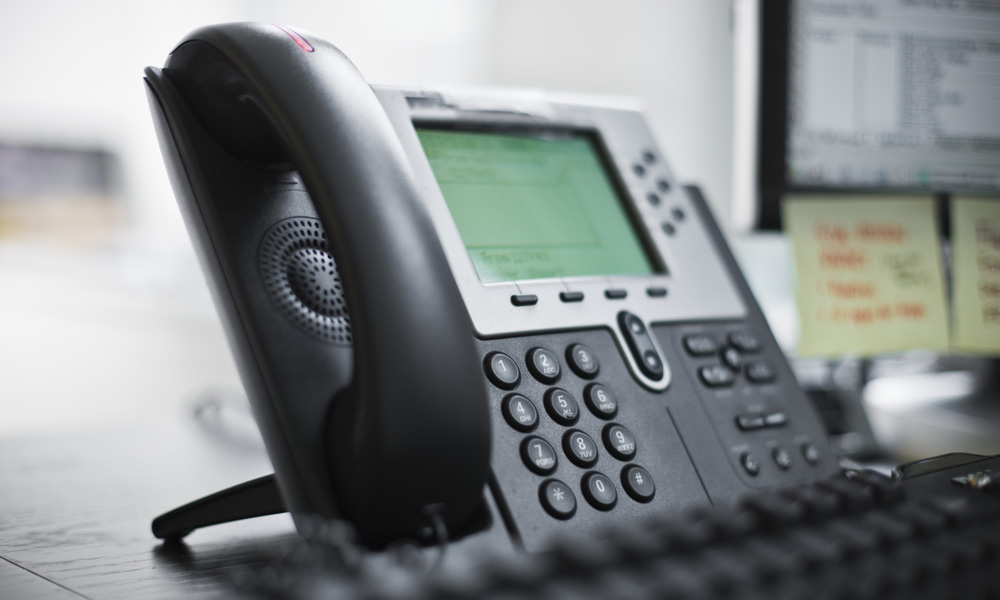
What’s Left of the Dial? Why the Office Phone is Fading
It may be a key tool for doing business, but with mobile phones offering higher degrees of functionality and flexibility, the office phone is starting to take a back seat to its newer cousin. But is that a good thing?
With the rise of mobile devices, it was only a matter of time before one of the mainstays of the office started to fade away.
We thought, why do you really need a phone? If you have a phone at your desk, it’s just sitting there and you’re kind of encouraging people to talk on it.
That device? The office phone. Like the rolodex before it, the cable-laden, voicemail-holding, dial-tone-emitting product may be beginning to see a decline, according to a recent study. More details:
The fade of the desk phone: While the desk phone isn’t dead yet, investment in the landline field is declining. According to the Telecommunications Industry Association, spending on landlines dipped to $65 billion in 2012—a decline of roughly one-third from 2008, and a trend that’s expected to continue. As a result, many infrastructure-based firms, such as Cisco, have faced declining revenue in the wake of the transition, and phone companies like Verizon have increasingly begun to lean on mobile.
One phone-free office: The offices of the popular note-taking app Evernote have taken a somewhat extreme step in their search for productivity: They’ve gotten rid of landline phones for nearly all of their employees, with the only exceptions being support staffers. In explaining the reason for the decision, CEO Phil Libin noted that it’s an example of the company’s move to get rid of unnecessary technology. “We thought, why do you really need a phone? If you have a phone at your desk, it’s just sitting there and you’re kind of encouraging people to talk on it,” Libin said in a New York Times interview last month. “Everyone’s got a cellphone, and the company pays for the plans. There are phones in the conference room. We’re not a sales organization, so we’re not making a lot of calls, either. If you’re at your desk, you should be working. And that’s actually worked really well. I don’t think anyone misses phones.”
The dark side of the change: Want to get away from the job for a little while? Good luck, thanks to that smartphone of yours. Brian Chen, author of Always On: How the iPhone Unlocked the Anything-Anytime-Anywhere Future—and Locked Us In, says that the issue that many people now face is that they can’t actually get away from the devices. “How many jobs allow you to unplug anymore?” he told Bloomberg. “Because these devices are capable of juggling so many different tasks and because they’re so connected to what we do for a living, we’re going to carry around our work lives with our personal lives. We’re going to juggle the two.”
With mobile devices growing in importance and significance, do you feel Evernote’s move away from landlines is the exception or the rule? Let us know your thoughts in the comments.
(Fuse/Thinkstock)






Comments